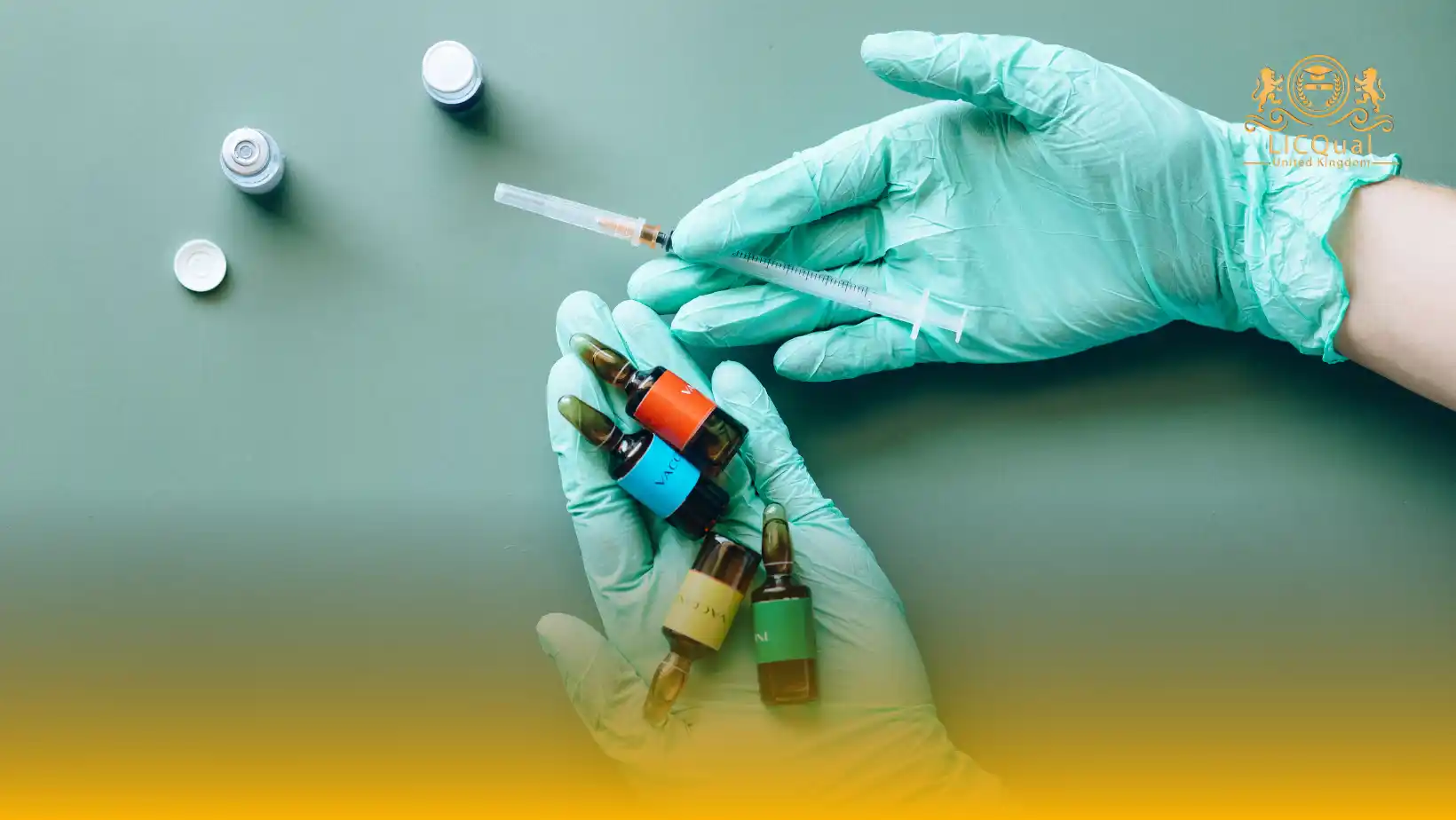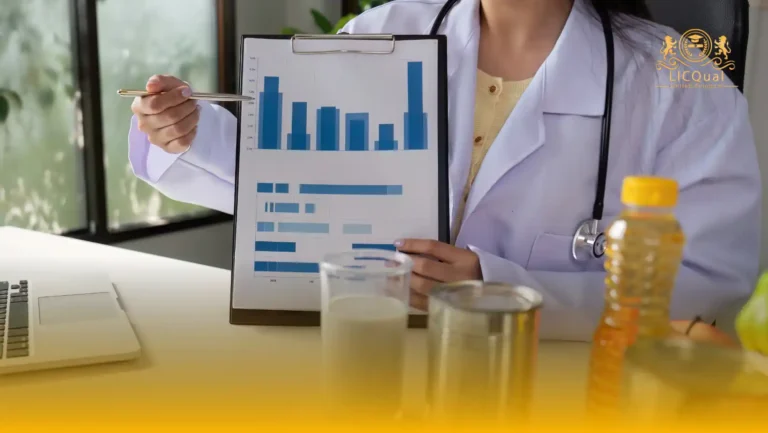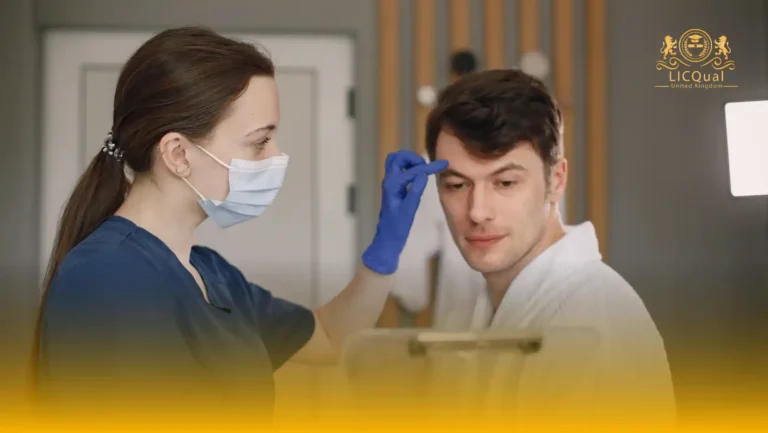The LICQual Level 3 Certificate in Medication Safety and Quality Assurance (Cert Medication Safety) is a specialised qualification designed for professionals seeking to enhance their knowledge and expertise in ensuring safe and effective medication practices within healthcare and pharmaceutical settings. This course equips learners with a comprehensive understanding of medication safety principles, quality assurance frameworks, risk management strategies, and regulatory compliance, enabling them to contribute to safer patient care and improved organisational practices. It is ideal for individuals aiming to advance their careers, broaden their professional expertise, and strengthen their Continuing Professional Development (CPD).
Learners will explore key areas such as medication error prevention, adverse event reporting, auditing processes, and quality improvement initiatives. The programme combines theoretical knowledge with practical applications, allowing learners to develop the skills needed to assess risks, implement safety protocols, monitor compliance, and evaluate quality standards across clinical and pharmaceutical environments.
LICQual emphasises the importance of high-quality training delivery. Centres offering this qualification must have competent and qualified staff, along with access to all necessary materials and resources, to provide a structured, supportive, and engaging learning environment. This ensures learners gain the knowledge, practical skills, and professional confidence required to succeed in their studies and professional roles.
By completing the LICQual Level 3 Certificate in Medication Safety and Quality Assurance, learners enhance their professional expertise and open doors to career opportunities in medication safety management, clinical governance, quality assurance, and healthcare compliance. This qualification is an essential step for committed professionals aspiring to excel in medication safety and make a meaningful impact on patient care and organisational quality standards.
Course Overview
Qualification Title
LICQual Level 3 Certificate in Medication Safety and Quality Assurance (Cert Medication Safety)
Total Units
6
Total Credits
24
GLH
120
Qualification #
LICQ2201133
Qualification Specification
To enroll in the LICQual Level 3 Certificate in Medication Safety and Quality Assurance (Cert Medication Safety) , applicants must meet the following criteria:
|
Qualification# |
Unit Title |
Credits |
GLH |
|---|---|---|---|
|
LICQ2201133-1 |
Introduction to Medication Safety |
4 |
20 |
|
LICQ2201133-2 |
Data Management Quality Assurance in Medication Managementand Analysis |
4 |
20 |
|
LICQ2201133-3 |
Risk Management and Error Prevention |
4 |
20 |
|
LICQ2201133-4 |
Regulatory Compliance and Best Practices |
4 |
20 |
|
LICQ2201133-5 |
Monitoring, Reporting, and Incident Management |
4 |
20 |
|
LICQ2201133-6 |
Professional Development and CPD in Medication Safety |
4 |
20 |
By the end of this course, learners will be able to:
Unit 1: Introduction to Medication Safety
By the end of this unit, learners will be able to:
- Explain the principles, scope, and importance of medication safety in healthcare and pharmaceutical settings
- Describe key concepts and objectives of safe medication practices
- Analyse the impact of medication safety on patient care and organisational outcomes
Unit 2: Quality Assurance in Medication Management
By the end of this unit, learners will be able to:
- Demonstrate knowledge of quality assurance frameworks and standard operating procedures (SOPs)
- Apply auditing and continuous improvement processes to medication management
- Evaluate methods for maintaining high standards of quality in healthcare and pharmacy practice
Unit 3: Risk Management and Error Prevention
By the end of this unit, learners will be able to:
- Identify potential risks and hazards in medication processes
- Apply strategies to prevent medication errors and adverse events
- Analyse the effectiveness of risk management techniques in promoting patient safety
Unit 4: Regulatory Compliance and Best Practices
By the end of this unit, learners will be able to:
- Explain relevant legal, ethical, and regulatory requirements in medication safety
- Apply best practices in compliance with Good Pharmacy Practice (GPP) and other standards
- Evaluate the role of regulatory frameworks in ensuring safe and effective medication management
Unit 5: Monitoring, Reporting, and Incident Management
By the end of this unit, learners will be able to:
- Monitor medication processes to ensure safety and compliance
- Accurately document and report incidents, errors, and adverse events
- Implement corrective and preventive actions to improve safety and quality outcomes
Unit 6: Professional Development and CPD in Medication Safety
By the end of this unit, learners will be able to:
- Reflect on personal practice to identify areas for professional growth in medication safety
- Develop a plan for continuous professional development (CPD)
- Apply ethical principles and professional standards in decision-making related to medication safety
The LICQual Level 3 Certificate in Medication Safety and Quality Assurance (Cert Medication Safety) is ideal for healthcare professionals, pharmacists, pharmacy technicians, and students who want to enhance their expertise in medication safety, risk management, and quality assurance. This course is perfect for anyone looking to advance their career, improve patient safety, and develop practical skills in managing medication processes in healthcare and pharmaceutical settings.
Healthcare Professionals
- Learn best practices in medication safety and risk reduction
- Understand regulatory compliance and healthcare guidelines
- Apply quality assurance strategies in clinical settings
- Monitor and analyze medication errors effectively
- Enhance patient safety and care outcomes
- Strengthen professional credibility in healthcare
Pharmacists and Pharmacy Technicians
- Implement safe medication handling and dispensing practices
- Conduct audits and quality assurance checks
- Ensure adherence to regulatory and industry standards
- Analyze and report medication errors
- Support clinical teams with safety insights
- Improve operational efficiency in pharmacy settings
Data Analysts and Healthcare IT Professionals
- Manage pharmaceutical data related to safety and quality
- Develop skills in data analysis for medication risk management
- Monitor trends and patterns in medication errors
- Ensure data accuracy and compliance
- Support evidence-based decision-making in healthcare
- Apply informatics tools to improve patient safety
Students and Graduates in Pharmacy or Health Sciences
- Build foundational knowledge in medication safety and quality
- Prepare for careers in hospitals, pharmacies, and healthcare organizations
- Gain practical skills for clinical and pharmaceutical practice
- Understand regulatory requirements and compliance
- Learn methods for monitoring and reporting errors
- Increase employability in healthcare and pharmaceutical sectors
Hospital and Healthcare Administrators
- Implement quality assurance programs across departments
- Ensure safe medication management practices
- Train staff on regulatory compliance and risk management
- Monitor performance metrics and safety outcomes
- Support continuous improvement in healthcare operations
- Enhance organizational reputation and patient trust
Pharmaceutical Industry Professionals
- Understand medication safety in drug development and distribution
- Monitor quality assurance across production and supply chains
- Ensure compliance with industry standards and regulations
- Contribute to safer pharmaceutical operations
- Analyze product safety and adverse event reports
- Strengthen career prospects in pharmaceutical quality management
International Healthcare Practitioners
- Gain a UK-recognized qualification for global recognition
- Apply medication safety principles in diverse healthcare settings
- Ensure ethical and regulatory compliance internationally
- Access flexible online learning options for career advancement
- Build a professional network with international peers
- Expand opportunities in global healthcare and pharmaceutical sectors
To ensure high-quality delivery and successful learner outcomes, centres offering the LICQual Level 3 Certificate in Medication Safety and Quality Assurance (Cert Medication Safety) must meet the following requirements:
- Qualified and Competent Staff: Centres must have instructors and assessors with relevant qualifications and professional experience in medication safety, quality assurance, pharmacy practice, or healthcare governance.
- Comprehensive Learning Resources: Centres should provide access to up-to-date textbooks, digital learning platforms, clinical guidelines, and practical tools to support effective teaching and learning.
- Safe and Adequate Facilities: Learning environments must be well-equipped, safe, and suitable for classroom instruction, practical exercises, and simulated clinical scenarios.
- Assessment and Monitoring Systems: Centres must implement robust processes to assess learners’ theoretical knowledge, practical skills, and competency in accordance with LICQual standards.
- Access to Practical Learning Opportunities: Learners should have opportunities to apply medication safety protocols, quality assurance procedures, and incident reporting processes in real-world or simulated scenarios.
- Commitment to Quality and CPD: Centres must support continuous professional development for staff and maintain ongoing quality assurance processes to ensure learners achieve high-standard outcomes.
Meeting these requirements ensures learners benefit from a structured, engaging, and professional learning experience, equipping them with the knowledge and skills necessary for career advancement in medication safety, quality assurance, and healthcare governance.
Assessment and Verification
All units within this qualification are subject to internal assessment by the approved centre and external verification by LICQual. The qualification follows a criterion-referenced assessment approach, ensuring that learners meet all specified learning outcomes.
To achieve a ‘Pass’ in any unit, learners must provide valid, sufficient, and authentic evidence demonstrating their attainment of all learning outcomes and compliance with the prescribed assessment criteria. The Assessor is responsible for evaluating the evidence and determining whether the learner has successfully met the required standards.
Assessors must maintain a clear and comprehensive audit trail, documenting the basis for their assessment decisions to ensure transparency, consistency, and compliance with quality assurance requirements.







